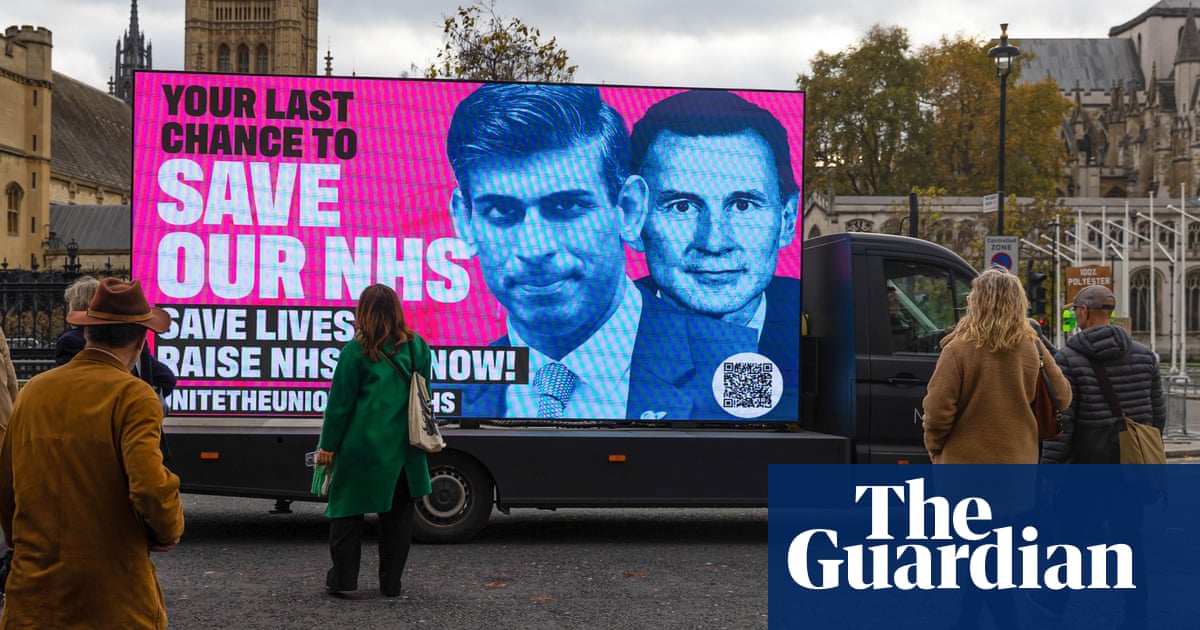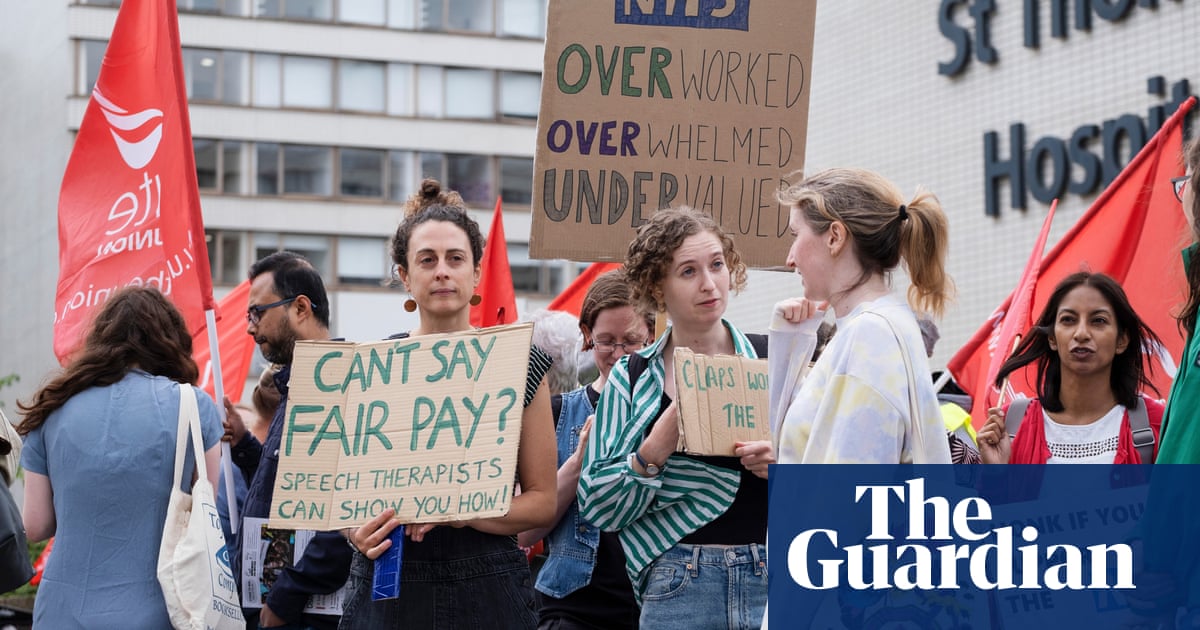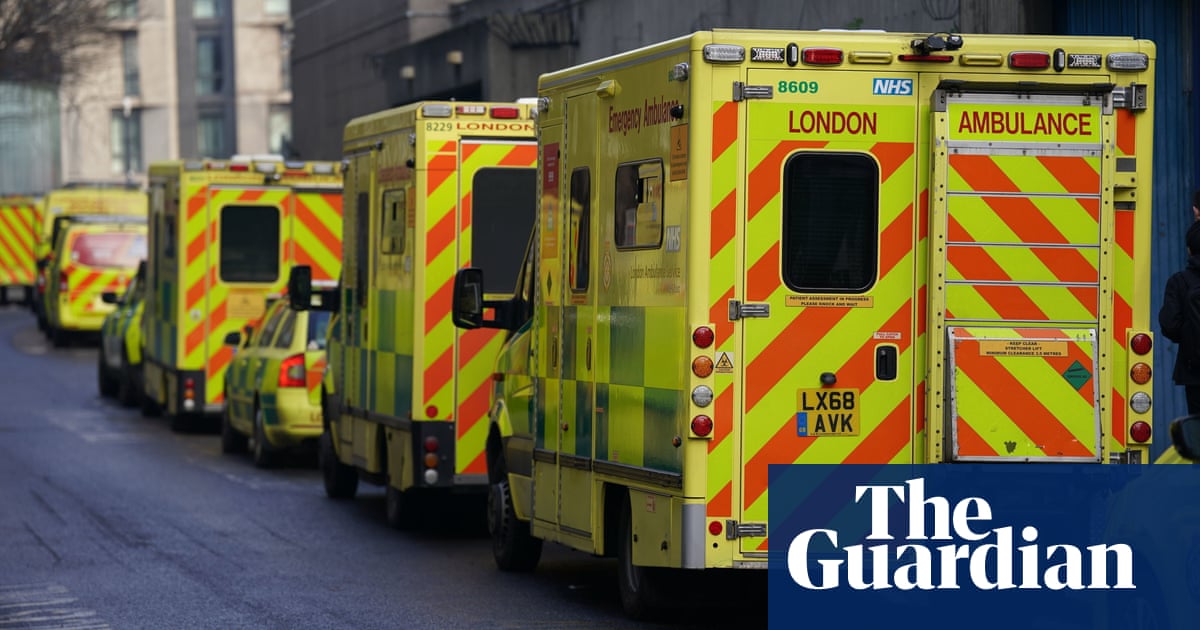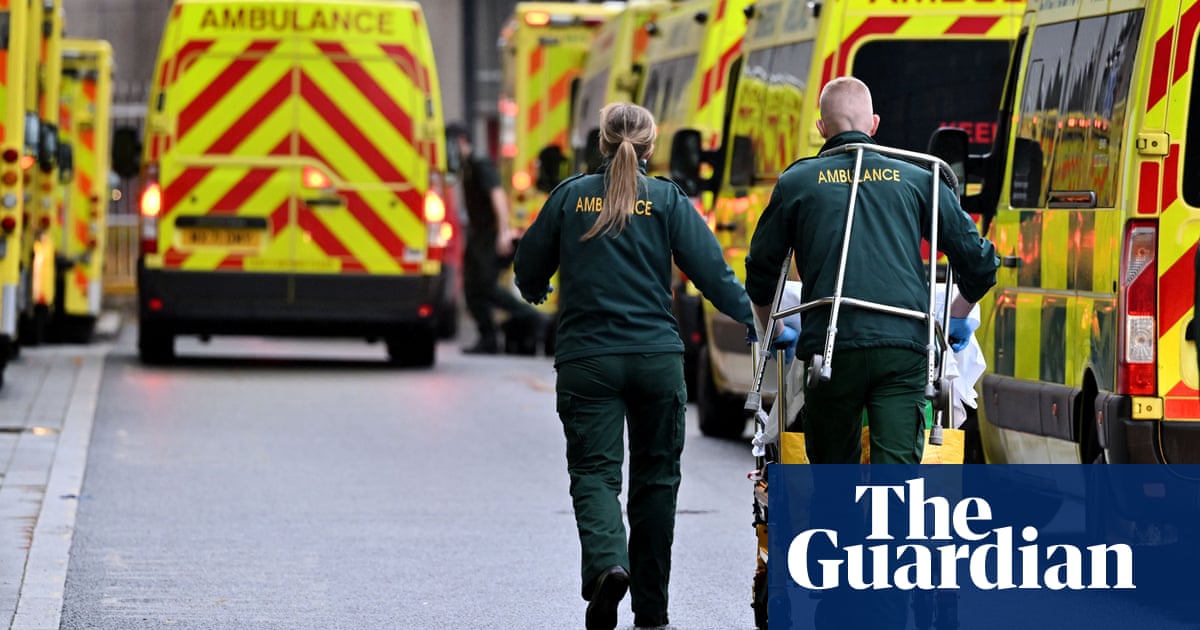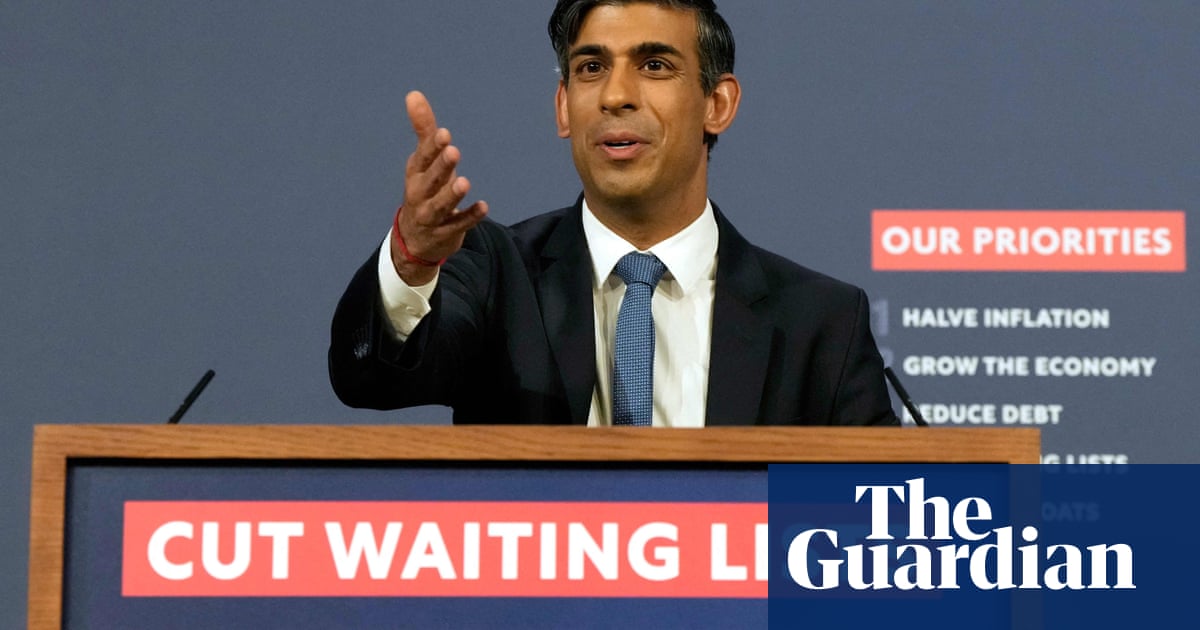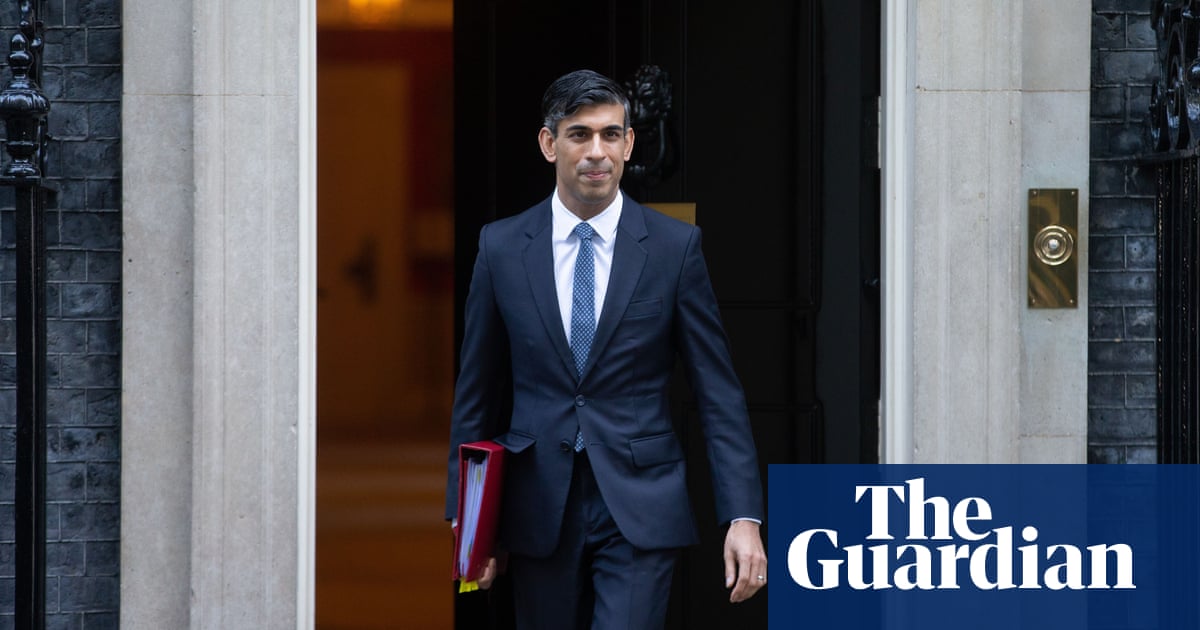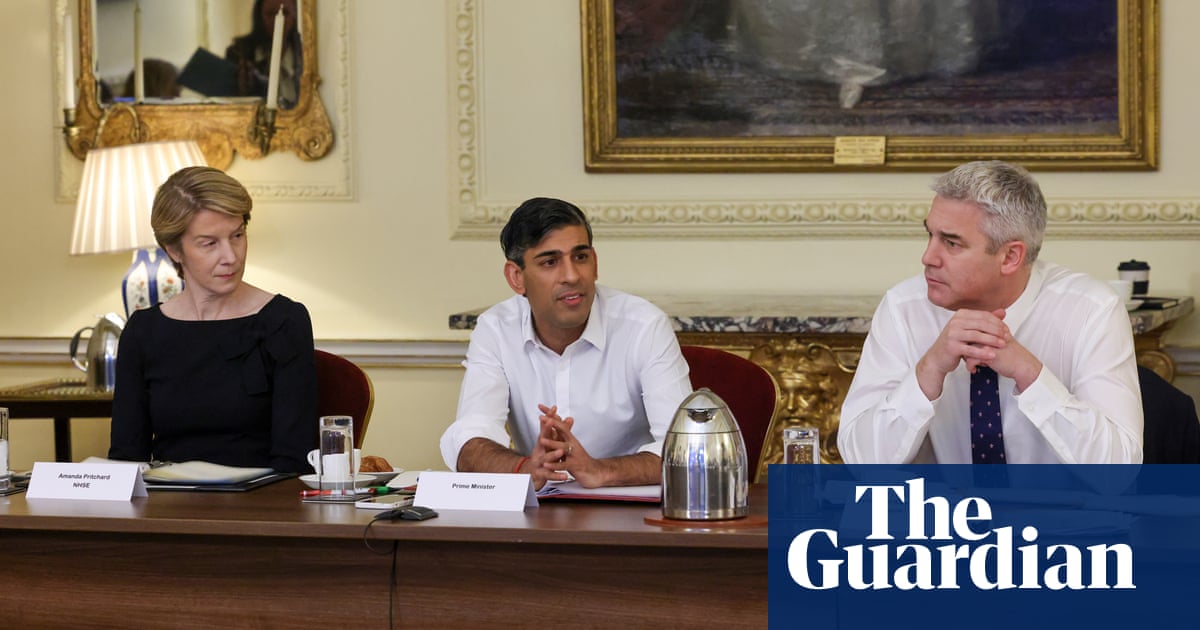
Rishi Sunak is holding emergency talks with NHS and care leaders in an attempt to tackle the winter healthcare crisis in England.
The NHS Recovery Forum at No 10 on Saturday will focus on four key issues: social care and delayed discharge, urgent and emergency care, elective care and primary care.
A Downing Street spokesperson said the aim was “to help share knowledge and practical solutions so that we can tackle the most crucial challenges such as delayed discharge and emergency care”.
But Sunak has been warned that the rare weekend meeting is unlikely to reverse the NHS’s fortunes. Labour said patients deserved more than a “talking shop” and the Liberal Democrats said it was “too little, too late”.
Senior doctors say the NHS is on a knife-edge, with many A&E units struggling to keep up with demand and trusts and ambulance services declaring critical incidents.
Discharge rates fell to a new low in England last week, with only a third of those patients ready to be released from hospital actually leaving.
The meeting also comes amid ongoing strike action by nursing and ambulance workers over pay and conditions.
Health unions have been invited to meet the health secretary, Steve Barclay, on Monday to discuss pay for 2023-24 from April, but unions say it will not prevent further strike action planned for January.
The Royal College of Nursing general secretary, Pat Cullen, has urged the prime minister to “grasp the nettle and negotiate with nurses” over the current settlement to prevent planned strikes.
She told BBC Radio 4’s Today programme: “We’ll, of course, go to the meeting and make the case for nursing in all forums, but it’s sadly not what’s going to prevent strike action that’s planned for 10 days’ time.
“I have put out an olive branch to get us to the table, I’m asking the prime minister now to meet the RCN halfway. The ball is firmly in the prime minister’s court.”
The forum is expected to last much of the day and those attending include Barclay, the Treasury minister, John Glen, Cabinet Office minister Oliver Dowden and the chief executive officer of NHS England, Amanda Pritchard.
Matthew Taylor, the chief executive of the NHS Confederation, said there were “no silver bullets” to solving the crisis at hospitals and other care centres.
“This crisis has been a decade or more in the making and we are now paying the high price for years of inaction and managed decline,” he said. “Patients are experiencing delays that we haven’t seen for years.
“High levels of flu, respiratory syncytial virus (RSV) and rising Covid levels are exacerbating the problem but the cause is decades of under-investment in staffing, capital and the lack of a long-term solution to the capacity-crunch facing social care.”
As well as ministers, attendees were due to include chief executives and clinical leaders from NHS organisations, local areas and councils from across the country.
A Downing Street spokesperson said: “As the prime minister made clear this week, easing the immediate pressures whilst also focusing on the long-term improvement of the NHS is one of his key promises.
“That’s why we’re bringing together the best minds from the health and care sectors to help share knowledge and practical solutions so that we can tackle the most crucial challenges such as delayed discharge and emergency care.
“We want to correct the unwarranted variation in NHS performance between local areas, because no matter where you live you should be able to access quality healthcare.”
The shadow health secretary, Wes Streeting, described the meeting as a “talking shop”. He said: “After 13 years of mismanaging the NHS, this is the equivalent of the arsonists convening a forum with the fire brigade to put out the inferno they started. Patients deserve more than a talking shop.
“Clinical leaders and health experts have been sounding the alarm for months about the crisis the NHS is facing, so why has it taken so long for Rishi Sunak and Steve Barclay to decide to listen to them?”
Streeting said the £500m for delayed discharges promised by the government had “yet to reach the frontline and is now too late to make a difference this winter”.
The Liberal Democrat deputy leader, Daisy Cooper, said the meeting was “too little, too late”.
“Hundreds of people have been dying needlessly each week in the worst NHS crisis ever experienced in this country, whilst the prime minister sat on his hands,” she said.




